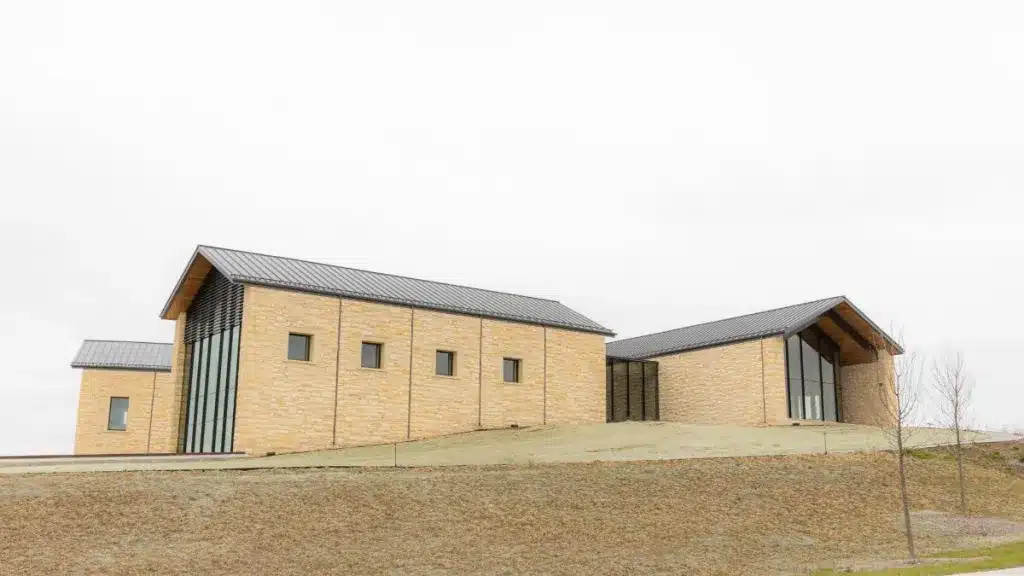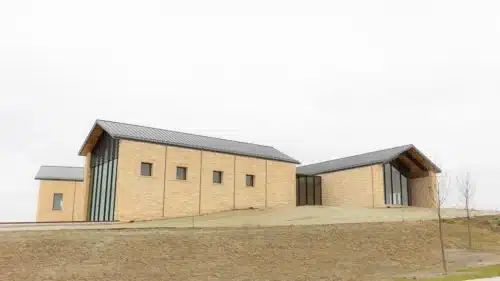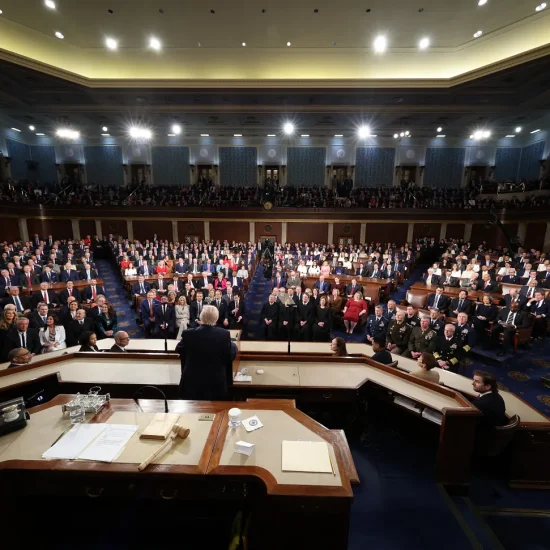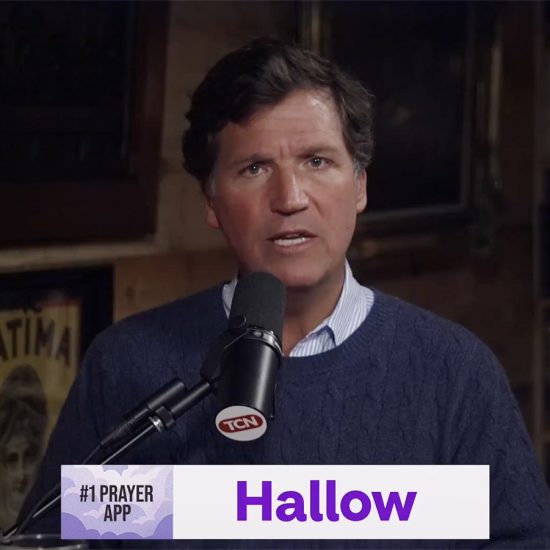
A young but politically connected foundation based in Clay County has become a major player in the effort to promote Christian education in Missouri and the United States — including courting government support for private schools.
With a new headquarters and training center in Smithville, the Stanley M. Herzog Charitable Foundation’s stated mission is “to catalyze and accelerate the development of quality Christ-centered K-12 education so that families and culture flourish.”
The foundation has offered grants and training to existing Christian schools and educators, launched a program to assist those starting new Christian schools and promoted state programs that help families fund private school education. A related entity employs a Missouri lawmaker.
Herzog Foundation leaders and staff members ignored numerous requests to elaborate on its vision for Christian education despite The Beacon’s many attempts to reach out by email, phone, LinkedIn message and the media contact form on the foundation’s website.
But an examination of its public statements and partnerships shows a foundation that has aligned itself with conservative figures, awarded grants to schools that exclude LGBTQ students and families, and funded science teacher training that promotes a literal interpretation of the Biblical creation story in opposition to scientific consensus on evolution.
The Herzog Foundation also promotes efforts to expand government support for private schools.
While supporters say those efforts help families access education that fits their values and academic needs, critics worry that the movement drains money from public schools and inappropriately entangles the state with schools that reject students for reasons such as religion, LGBTQ identity, disability and academic performance.
What is the Herzog Foundation?
The Herzog Foundation launched in December 2020 after its namesake donated several hundred million dollars upon his death in 2019.
According to the foundation’s website, Stanley Herzog spent his career at Herzog Contracting Corp., a railroad and transportation company founded by his father.
He was a prolific donor to Republican politicians and causes in Missouri and beyond, including giving $650,000 to support former Gov. Eric Greitens’ 2016 campaign and donating to Missouri attorney general and U.S. Senate campaigns for U.S. Sen. Josh Hawley.
Herzog’s children attended St. Joseph Christian School in St. Joseph.
The most recent tax filings for the foundation available online show it received more than $21.7 million in contributions in 2019 and about $324.6 million in 2020, plus about $10 million in dividends.
Herzog specified that the foundation should spend the money within 20 years, according to Jonathan Edmondson, project manager and administrator for the Herzog Foundation’s SchoolBox Program, who gave an interview posted Jan. 10 with CurriculumTrak, a Christian publishing company. But a related entity, the Herzog Tomorrow Foundation, has been founded to continue its work in future decades, Edmondson said.
According to the Herzog Foundation website, Todd Graves, a lawyer, is the chairman of the board. John Elliott, founder and vice president of Inside Information, a company that does marketing and research for electric utilities, is vice chairman. Kristen Blanchard Ansley, an attorney who specializes in “advancing the conservative message,” is secretary/treasurer.
Graves, the brother of U.S. Rep. Sam Graves, previously served as the U.S. attorney for the Western District of Missouri. In 2016, then-governor-elect Eric Greitens named him chairman of the Missouri Republican Party. He is Gov. Mike Parson’s appointee to the University of Missouri System Board of Curators.
Graves is also on the board of Ballotpedia and is a founding board member of the Kansas City Missouri Police Foundation.
In October 2022, former U.S. Secretary of Education Betsy DeVos headlined an inaugural event for the foundation’s new headquarters and training facility in Smithville. As President Donald Trump’s education secretary, DeVos was controversial in part because of her support for private schools.
Republican U.S. Sen. Ted Cruz of Texas is also a supporter. He lent a flattering quotation to the 2021 year in review post, and the foundation’s online publication includes a piece by Cruz titled “The Pervasiveness of Critical Race Theory in Our Schools Demonstrates Why We Need School Choice.”
Supporting Christian schools and tax credit scholarships
Led by President Darrell Jones, a longtime pastor of an evangelical church, current Herzog Foundation programs include:
- Grants to Christian schools in a handful of states, especially Missouri. They totaled at least $2.7 million in 2021 and more than $3.8 million in 2022.
- The Lion, an online news publication covering “issues facing American families and culture,” particularly those related to education. The foundation says it has reached more than 30 million readers.
- SchoolBox, a program that supports the founding of new Christian schools. It has worked with at least 20 “education entrepreneurs.”
- Training events for school leaders and teachers. In 2022, 588 school leaders and 257 schools in 40 states received training.
- Teacher of the Year Awards.
- The American Dream Speaker Series, featuring speakers including DeVos and former U.S. Secretary of State Mike Pompeo.
- Podcasts including the “Morning Routine” and “Making the Leap.”
In addition, the Herzog Tomorrow Foundation is one of six nonprofits that administer MOScholars, a voucherlike private school scholarship program run through the Missouri treasurer’s office that grants tax credits to donors who contribute.
With an expansion of a program like MOScholars, there would be more opportunities for families to sit around their dining room table at night … and say, ‘Let’s consider another option. We have some options.’
-Cordell Dick, director of access and affordability at Summit Christian Academy
Herzog Tomorrow Foundation and the five other nonprofits — all of them with religious connections — receive donations, determine which schools they will partner with and award scholarships to eligible students.
While MOScholars is available for secular private schools, home schools and students attending public school districts in which they aren’t residents, Christian schools dominate the program.
Schools in the program aren’t required to accept all students they have room for. Some specify religious-based admissions requirements on their websites or note that they aren’t able to accommodate all students with disabilities if they can’t meet academic standards.
In late March, Herzog Tomorrow Foundation scholarship director Chris Vas testified to a Missouri House committee that from July to December 2022 the foundation gave 604 scholarships, 20% of which went to students with individualized education plans, or IEPs, often used for students with disabilities.
In total, he wrote, about 60% of scholarship recipients fell into the first tier of eligibility, for students with IEPs and those from families making little enough money to be eligible for free or reduced-price school lunches. The second tier of eligibility admits families making up to 200% of the free or reduced-price lunch threshold.
According to a January St. Louis Post-Dispatch article, 35% of students who used MOScholars funds in the fall had attended public schools the previous year.
The Missouri Treasurer’s Office did not respond to repeated requests for updated information on the program.
How a local Christian school benefits from MOScholars
Summit Christian Academy, located in Lee’s Summit, has seen the impact of the Herzog Foundation from multiple angles.
This school year, 39 students — most of them kindergartners or first graders — attended with MOScholars funding received through tax-credit-eligible donations collected by the Herzog Tomorrow Foundation and other nonprofits.
Cordell Dick, the school’s director of access and affordability, said the state-sponsored scholarship money frees up some of the school’s financial aid funds for other families.
“We want students in our school that come from all income levels,” Dick said. “…So hence my job is to try to work with everybody that wants to have their children in our school and see if we can work something out.”
Dick said many families assume private school education is out of reach.
“With an expansion of a program like MOScholars, there would be more opportunities for families to sit around their dining room table at night … and say, ‘Let’s consider another option. We have some options,’” he said.
In addition to the MOScholars funding, in 2022 the school received a “challenge grant” of $100,000 directly from the Herzog Foundation, head of school Chris Hahn said.
Administrators have participated in Herzog-sponsored training on development, strategic planning and school culture and core values. A Summit Christian Academy teacher was also honored as part of the Herzog Teacher of the Year awards.
Hahn said the Herzog Foundation’s work comes at an opportune time for Christian schools, as a confluence of spiritual and societal factors increases interest in faith-based education.
“God is doing something in a number of Christian schools across our country,” Hahn said. “I do believe that in parts of our country, there is spiritual renewal going. I do believe it’s also in response to some of the challenges related to education during a pandemic.”
This school year, Summit Christian Academy — which enrolls about 1,200 students from preschool through 12th grade — had close to 100 total students on its waiting lists. For the upcoming school year, Hahn projects that number could double. Most grades already have waiting lists.
“Depending upon the value shared by the home, they (parents) may want an educational opportunity that aligns closer with a biblical worldview,” Hahn said, describing such a worldview as one that believes scripture is “without error” and takes it as the “absolute authority.”
Potential growth of the MOScholars program
While the MOScholars program is still relatively small, efforts are already underway to expand it.
Missouri Rep. Josh Hurlbert, R-Smithville, works as a part-time scholarship coordinator for the Herzog Tomorrow Foundation and has filed half a dozen bills that would expand the MOScholars program to varying degrees.
The most sweeping of them would make every student in the state eligible to receive a scholarship funded directly by the legislature through the Missouri Department of Elementary and Secondary Education.
Hurlbert did not respond to interview requests from The Beacon.
As of April 4, none of Hurlbert’s MOScholars bills has been referred to a committee.

The Stanley M. Herzog Charitable Foundation has become a major player in the effort to promote Christian education in Missouri and the United States. Its headquarters and training center in Smithville, Missouri, is pictured April 3. (Zach Bauman/The Beacon)
But other proposals that would expand the program have started to advance. They include a bill filed by Sen. Andrew Koenig, R-Manchester, that was approved by a Senate committee and could next be discussed by the full Senate as well as a proposal from Rep. Phil Christofanelli, R-St. Peters, that received a hearing from a House committee in late March.
Rep. Maggie Nurrenbern, a Democrat from northern Kansas City who graduated from Smithville High School, suggested that the other proposals have advanced more quickly because of concerns with the optics of Hurlbert promoting legislation that benefits his employer.
Nurrenbern, a former teacher, said she was required to quit her job at a public school when elected to the legislature. But Hurlbert, she said, is “actively pushing legislation to benefit the organization that employs him.”
She called the situation an “ethical concern…. Not only is this person not recusing themselves from these votes. This person is actively sponsoring and advocating for this legislation.”
Nurrenbern said she also has concerns about the content of the legislation and the Herzog Foundation’s effort to shift public funds to private Christian schools that don’t admit all students.
“I think they’re actively pushing the dismantling of public education,” she said.
The Herzog Foundation’s values
Patrick Wolf, a distinguished professor of education policy and endowed chair of school choice at the University of Arkansas, has a generally positive view of private school voucher programs.
Wolf has remained somewhat optimistic about the academic potential of voucher programs if structured correctly. In his assessment, research on academic impact is “mixed” but tilts slightly positive.
But in an interview with The Beacon, he emphasized not the schools’ academic impact, but research on “character” outcomes like educational attainment, avoiding teen pregnancy, getting married and maintaining a marriage.
“There’s pretty substantial evidence that attending a private school has positive effects on those outcomes,” he said. Wolf added he has conducted research on private schools’ impact on reducing criminal convictions with “intriguing” results.
Like that research, much of the recent conversation about helping parents choose private education focuses less on academics and more around faith, character and culture.
Joshua Cowen, a professor of education policy at Michigan State University, says voucher advocates, including some Democratic officeholders, used to commonly frame them as a way to improve academic outcomes through the power of the free market.
But when some attempts to roll out vouchers on a large scale — such as in Louisiana — brought “incredibly harmful impacts on student achievement,” the programs lost favor with many researchers and policymakers, he said.
Now, much of the conversation has become tied to “culture war” discourse about parents’ right to choose education that matches their values, Cowen said, even if that means excluding LGBTQ students or others.
“These things have moved from a staple of ed reform movements … to much more directly tied to this kind of white nationalism, Christian nationalism, culture wars, parents’ rights, anti-DEI, anti-CRT, anti-LGBTQ,” he said. “All of this is wrapped up together.”
The Herzog Foundation’s website, publications and partnerships place an emphasis on hot-button cultural issues.
Its online news publication, The Lion, frames its mission against a backdrop of anxiety-inducing liberal culture change.
“Parents are unsure what kind of future awaits their children, and they fear too many, even their own, will be swept up in a small but raging torrent of political and ideological progressivism,” managing editor Josh Mann wrote for the publication’s “about” section in a piece dated Aug. 5, 2021. Mann did not respond to an emailed interview request.
Many of the articles published or republished in The Lion focus on the “torrent” of progressivism, highlighting controversial issues related to gender, sexuality, race and diversity.
Other articles and opinion pieces on the website focus on education legislation — particularly efforts to expand programs that help parents send children to private schools, negative assessments of public schools and criticism of teachers’ unions.
They will be faced with the reality that everything they’ve been taught, or a good chunk of what they’ve been taught, is simply wrong.
-Rep. Maggie Nurrenbern, D-Kansas City
Local public schools and their proponents don’t escape scrutiny. Recent stories have covered a St. Joseph principal being pulled over for a suspected DWI, a parent’s complaints about a “designer baby” assignment in a Liberty public school that the article said was “frighteningly similar to eugenics” and a Liberty couple donating controversial young adult books to a Little Free Library.
Herzog Foundation training and grants
Training the foundation pays for also gives an indication of its beliefs and values.
Some courses focus on the logistics of keeping a school sustainable, such as cultivating donors and making a strategic plan.
Other trainings include “Constitutional Conversations: Religious Liberty,” hosted in Smithville by the Bill of Rights Institute; a “Museum of the Bible Bible Teacher Training” in Washington, D.C.; and “Cultural Conversations: A Teacher’s Worldview Training” hosted by The Colson Center and Herzog Foundation at Focus on the Family in Colorado.
The latter training promises teachers will learn to be “cultural ambassadors at their schools” on “topics like same-sex marriage, abortion, gender identity, and more.”
The foundation also sponsors an “Answers in Genesis Science Teacher Training” at the Creation Museum and Ark Encounter in Kentucky.
Answers in Genesis promotes the belief that the seven-day creation account in the first book of the Bible is literally true and that the Earth is approximately 6,000 years old. It disavows attempts to harmonize the creation story with the modern scientific consensus that the Earth is billions of years old and that humans and other life forms evolved over time.
The Herzog Foundation has granted money to schools in Missouri that note on their websites that they teach a “creationist” perspective or believe in a literal Genesis account of creation, including River Oak Christian Academy in Jefferson City, Gloria Deo Academy in Springfield and St. Joseph Christian School.
The foundation has also given grants to schools that specifically note that students can be expelled or denied admission if they or their families engage in what the school considers to be immoral sexual activity. In Missouri, those include St. Joseph Christian School in St. Joseph, Northland Christian Education System in Kansas City and College Heights Christian School in Joplin.
Others, like Summit Christian Academy, have similar gender and sexuality statements disavowing transgender identity and sexual activity outside of a marriage between one man and one woman, but don’t state exactly what that means for students’ enrollment in the school.
St. Joseph Christian School — where Stanley Herzog sent his children — notes that at least one parent and all students grades 7-12 must be “born-again” Christians who regularly attend an evangelical church and agree with the school’s “essential statements,” including that America has a “Christian heritage” and the theory of evolution is invalid.
All board members believe in a literal six-day creation, the website says, but don’t take sides between “young Earth” and “old Earth” creationists.
Nurrenbern, the Democratic representative from northern Kansas City, said she was disturbed to learn that some schools in the MOScholars program are teaching creationism.
“It’s a very challenging reality that these kids are going to be faced with when they exit these schools and hopefully go on to an institution of higher learning… and they will be faced with the reality that everything they’ve been taught, or a good chunk of what they’ve been taught, is simply wrong,” Nurrenbern said.
This article first appeared on The Beacon and is republished here under a Creative Commons license.![]()






